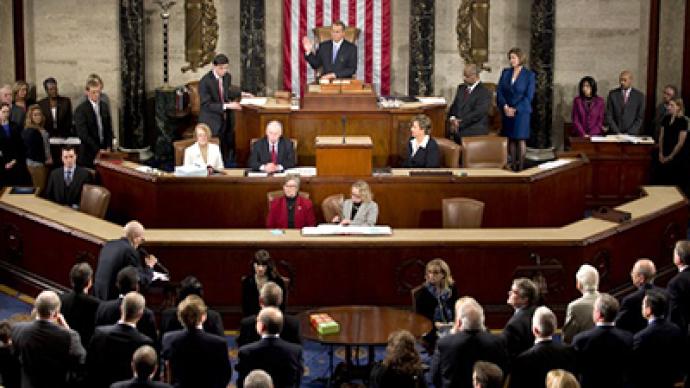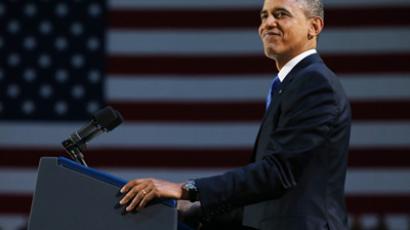House raises debt ceiling to avoid US default

The House voted on legislation Wednesday that will raise the debt ceiling for three months and delay a US default. Even though this is just a short term fix, the Obama administration said it supports it.
The legislation prevented a devastating default of US debt and payments next month and instead give Congress three more months to come up with an agreement on the budget, taxes, spending and the deficit. The move would cause the congressional budget battles to once again take place – but this time in March.The legislation contains a “no budget, no pay” segment that ensures both House and Senate members will no longer receive their paychecks if a budget isn’t agreed upon by April 15, putting further pressure on legislators to come up with a plan. Although President Obama prefers a long-term solution and said incremental increases in the debt ceiling ultimately harm the economy, continued disagreement in Congress has prompted him to support the extension. While House Democrats appear widely opposed to the measure, Senate Democrats are reluctantly supporting it, AP reports.The March talks will come at a time when automatic spending cuts are set to go into effect and severely affect the Pentagon budget. The military would face a 30 percent reduction in operating costs for Army posts, while the Pentagon would have to determine how it could come to terms with $500 billion in cuts over the next decade.“The fiscal situation and outlook are serious. Our funding is in doubt as we support forward-deployed troops, those training and Wounded Warriors," wrote Army Secretaries John McHugh and Gen. Raymond Odierno in a letter to commanders.The automatic cuts would trim $85 billion from the 2013 budget, which the GOP plans to re-sequester during the next budget battle. Members of Congress who oppose the spending cuts will be forced to come up with an agreement on how to replace them, if they want to come up with an agreement on the deficit. A battle on raising taxes will likely ensue.“We feel by moving the issue of raising the debt ceiling behind the sequestration … that we reorder things in a way that Democrats will have to work with,” Rep. John Fleming, R-La., told AP. “The cuts are the kind of cuts we want, they’re just not in the places we want. But they’re also not in the places that the Democrats want. So hopefully they’ll be forced to come to the table and work with us on a bipartisan basis to put them where they need to be, where it has the less pain.”The three-month extension allows Congress to prolong talks about the $16.4 trillion deficit and it has caused stock markets to trade cautiously on Wednesday. By midafternoon in Europe, stock indexes were lacking momentum and Wall Street opened with equally little momentum, as the markets were awaiting the vote in Congress.The credit agency Fitch Ratings said this month that it would consider downgrading America’s credit score if there is any sort of delay in coming up with a budget plan to raise the debt ceiling by March 1. The agency has not commented on Wednesday's vote, but the move might prompt it to lower the US credit rating, thereby lowering international trust in US borrowing.With the economy depending on the decision that lawmakers will be forced to come up with to avoid a default, the uncertainty about the US economic future has once again been prolonged with the extension as partisanship continues to rage through Congress.“The sequester is arbitrary, but the fact is that when the sequester goes into effect… it will have a pretty dramatic effect of people’s attitudes here in Washington, and they may get serious about cuts to the mandatory side of the spending equation,” said Speaker of the House John Boehner.














